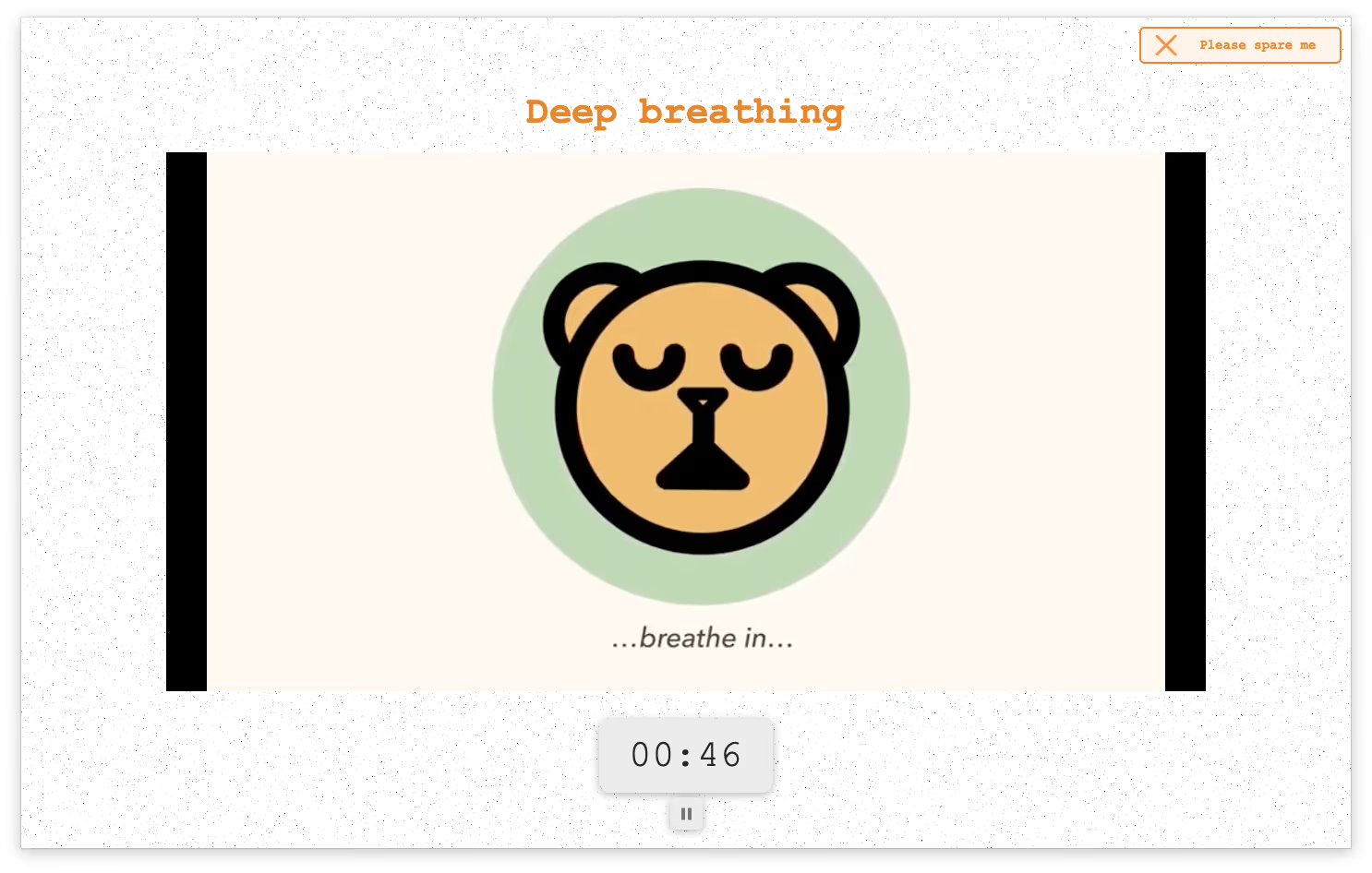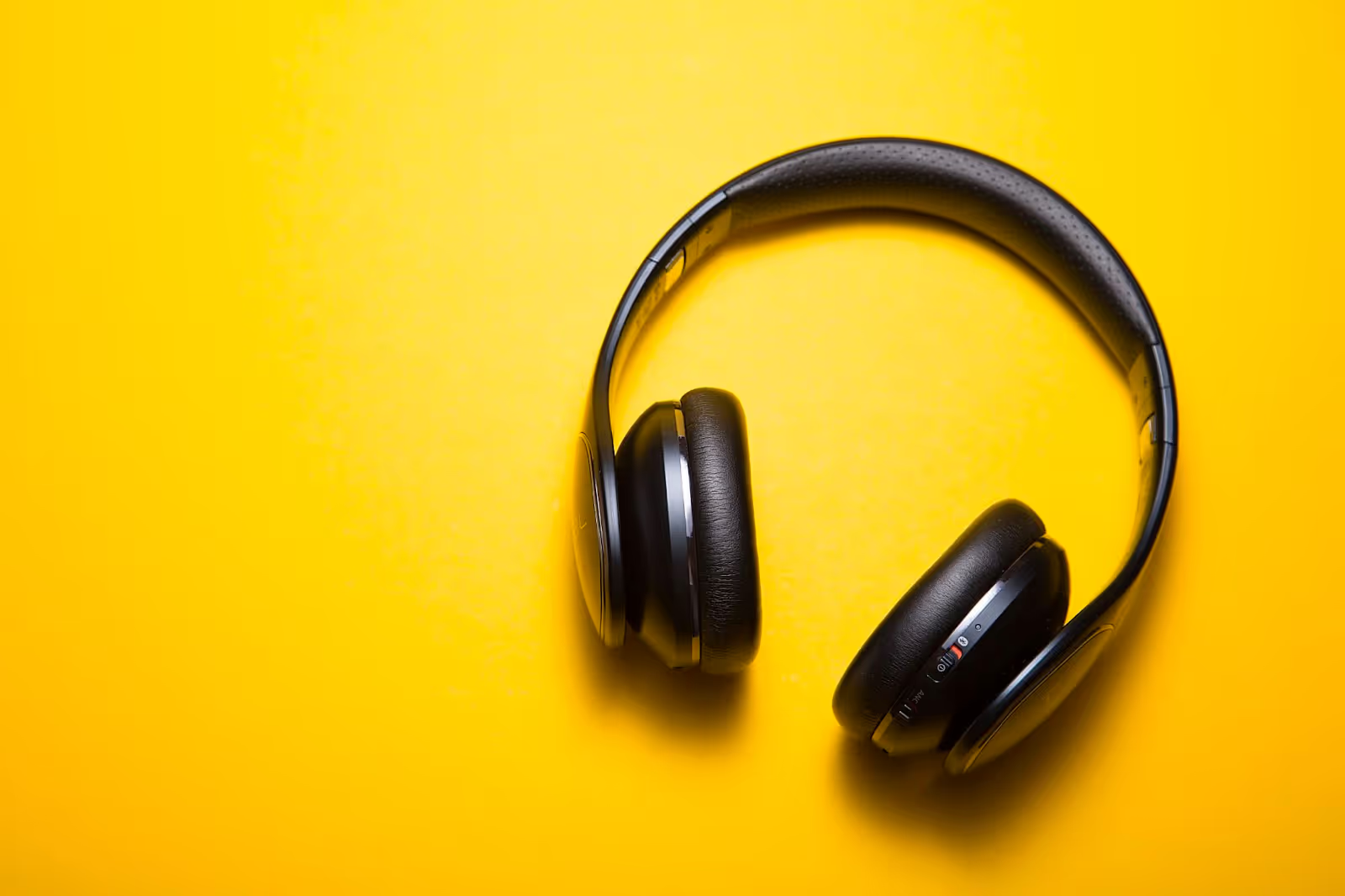Breathwork has been found to be an effective tool in helping individuals manage symptoms of ADHD.
For individuals with ADHD, life can be overwhelming due to attention, organization and emotional regulation difficulties. However, incorporating various breathing exercises into one's routine may provide some relief.
In this blog post, we will delve into the world of ADHD breathwork by exploring coherent breathing techniques and their benefits for those struggling with ADHD. We'll also discuss how yoga practices can improve focus in children diagnosed with this condition and examine different types of breathwork methods designed to help manage ADHD symptoms more effectively.
Furthermore, we will provide practical tips on integrating these powerful tools into daily routines for adults living with ADHD while highlighting the need for further research on the connection between breathwork and neurocognitive development.
So take a deep breath as we embark on an enlightening journey towards better understanding the potential impact of conscious breathing on executive abilities and overall well-being for those affected by ADHD.
30 day money back guarantee
No Credit Card Required Upfront
Coherent Breathing for ADHD
Living with attention deficit hyperactivity disorder (ADHD) can be a real challenge, but don't worry - we've got your back.
Introducing coherent breathing, a breathwork technique that can help you become more attentive and relaxed at the same time.
Studies show that it balances the autonomic nervous system, improving brain function and reducing impulsivity and hyperactivity.
Benefits of Coherent Breathing for Individuals with ADHD
This simple yet powerful practice offers numerous benefits, including:
- Increased focus and attention span;
- Better emotional regulation;
- A calmer mind to tackle complex activities;
- Promotion of neurocognitive development;
- Easing of stress and anxiety symptoms associated with ADHD.
Balancing the Autonomic Nervous System Through Breathwork
The secret behind coherent breathing is its ability to balance the body's autonomic nervous system (ANS).
The ANS controls involuntary functions like heart rate, digestion, and respiratory rate. It has two branches: sympathetic ("fight or flight") and parasympathetic ("rest & digest").
Research published in the Journal of Biological Psychiatry suggests that coherent breathing can help balance these two branches, creating harmony within the nervous system and improving ADHD symptoms.
Ready to give it a try? Here's how:
- Sit or lie down comfortably;
- Inhale slowly through your nose for five seconds;
- Exhale gently through your mouth for another five seconds;
- Repeat this cycle for about five minutes daily.
The best part is you can practice coherent breathing anywhere - at home, work, or even during commutes.
Consult with a medical expert prior to beginning any new therapy or procedure for ADHD.
Yoga Practices to Improve Focus in Adults with ADHD
Let's talk yoga.
Did you know that incorporating yoga into your routine can help you manage your attention deficit hyperactivity disorder (ADHD) symptoms?
Research has shown that it can significantly improve focus and reduce hyperactivity levels.
Belly-Breathing Techniques: Oxygen for the Brain
Diaphragmatic breathing, or belly breathing, is a widely-used yoga practice that helps to bring more oxygen into the reticular formation of the brain - an area responsible for regulating attention and alertness.
This method increases oxygen supply to the brain's reticular formation - an area responsible for attention and alertness.
Incorporating deep breaths into your daily routine can have a noticeable effect on your focus and capacity to complete intricate tasks.
Polar State Tension-Relaxation Exercises Combined with Yoga Practices
Body-oriented therapy has been shown to have positive long-term effects on individuals with ADHD.
A study conducted by Russian neuropsychologist Ann Semenovich demonstrated that when provided three times per week over two-to-three months, polar state tension-relaxation exercises (PSTRE) combined with traditional yoga techniques resulted in improved executive abilities among participants.
Actionable Tips:
- Find age-appropriate online resources or classes teaching basic yoga poses suitable for adults diagnosed with ADHD.
- Create a consistent schedule by setting aside time each day or week dedicated solely to practicing yoga and breathing exercises.
- Encourage yourself to practice belly breathing during daily activities, such as work or while watching TV.
By integrating yoga practices into your routine, you can help improve your focus and reduce ADHD symptoms in a natural way.
Ready for more tips on managing ADHD? Check out Focus Bear - an app designed specifically for adults with ADHD.
Different Types of Breathwork Techniques for Managing ADHD Symptoms
Breathwork can be a powerful tool for managing ADHD symptoms, and there are several techniques available to help improve cognitive functioning. There are various techniques that have been found helpful in improving cognitive functioning and executive abilities, such as decision-making skills. In this section, we'll explore two popular methods: Box Breathing and 4-7-8 Breathing.
Box Breathing Technique Explained
The Box Breathing technique is simple yet effective. Inhale for four beats, retain the breath for an equal amount of time, exhale in a similar fashion and pause once more - thus forming a "box" pattern.
4-7-8 Breathing Method Explored
Moving on to the 4-7-8 method. This technique requires you to inhale through your nose quietly while counting to four mentally. Then hold your breath as you count up to seven. Finally, exhale completely through your mouth while counting up to eight.
Tips for Practicing Breathwork During Daily Activities
- Set aside a specific time each day to practice - consistency is key.
- Incorporate breathwork during mundane tasks like waiting in line or commuting.
- Create visual reminders (e.g., sticky notes) around your home or workspace to prompt you throughout the day.
Establishing a Consistent Practice Schedule
A consistent schedule is crucial for reaping the benefits of breathwork on ADHD symptoms. Body-oriented therapy, including breathing exercises, has been found to improve focus and neurocognitive development. According to a study published in the Journal Biological Psychiatry, coherent breathing can help regulate the nervous system and improve complex activities. So, make sure to practice these techniques regularly to see the best results.
Key Takeaway: Breathwork can be a game-changer for managing ADHD symptoms, and two popular techniques are Box Breathing and 4-7-8 Breathing. Practicing breathwork consistently during daily activities like waiting in line or commuting can improve focus and neurocognitive development, so it's important to establish a consistent practice schedule.
Integrating Breathwork into Daily Routines for Adults With ADHD
For adults with Attention Deficit Hyperactivity Disorder (ADHD), breathwork can be a powerful tool for symptom management and increased focus.
These methods are easy to practice anywhere and anytime, making them perfect tools to help manage symptoms and improve focus.
So how do you start?
Tips for Practicing Breathwork During Daily Activities
#1: Make it a habit by linking it to an existing routine (e.g., while commuting or waiting in line).
#2: Set reminders on your phone or Focus Bear app, so you don't forget to practice regularly.
#3: Use headphones with guided sessions if needed, especially when starting out.

Establishing a Consistent Practice Schedule
Spoiler alert: The key here is consistency.
- Create a weekly plan that includes specific times for practicing different types of breathworks (e.g., box breathing on Mondays and 4-7-8 breathing on Wednesdays).
- For maximum benefit, aim for at least 5 minutes of practice per session; however, even briefer intervals can be beneficial.
- If possible, try adding longer sessions once or twice per week as part of your self-care routine. You deserve it.

Integrating breathwork into your daily routine can be a powerful way to manage ADHD symptoms and improve focus.
Journal Biological Psychiatry published a study that found body-oriented therapy, such as coherent breathing, can improve executive abilities and neurocognitive development in adults with ADHD.
Remember, consistency is key, so start small and build from there. You've got this.
The Need for Further Research on Breathwork and ADHD
Let's face it, folks. While breathwork and yoga have demonstrated some encouraging outcomes for people with ADHD, there is still much to be discovered. Though evidence is promising, further research must be done to determine the efficacy of breathwork and yoga for ADHD.
Current Limitations of Existing Studies on Breathwork and ADHD
Many studies conducted so far have small sample sizes or lack control groups, making it difficult to draw definitive conclusions about the effectiveness of breathwork techniques in managing symptoms associated with ADHD, such as improved cognitive functioning related to executive abilities (e.g., decision-making skills).
Potential Areas of Exploration for Future Research
But fear not. We're optimistic that further investigation into this topic will help us better understand how different types of breathing exercises can benefit those living with ADHD.
- Potential area #1: Long-term effects - Are there lasting improvements in focus and behavior after consistent practice?
- Potential area #2: Optimal frequency - How often should one practice deep breathing exercises for maximum impact?
- Potential area #3: Customization - Can specific techniques be tailored to address individual needs based on unique symptom profiles?
For those diagnosed with ADHD, incorporating breathing exercises into their daily routine may be a worthwhile strategy to manage symptoms. After all, these practices are portable and accessible, making them easy tools to incorporate into daily routines like riding the subway or attending school. They also cost nothing and are unlikely to cause harm.
As research progresses, more info will likely be uncovered on how breathing exercises can help those with ADHD lead better lives.
Key Takeaway: Breathwork and yoga have shown some promise in helping children with ADHD, but more research is needed to fully understand their benefits. Current studies on breathwork techniques have limitations such as small sample sizes or lack of control groups, making it difficult to draw definitive conclusions about their effectiveness. However, incorporating regular sessions involving different types of breathing exercises might be worth a shot for those living with ADHD while further investigation into this topic continues.
FAQs in Relation to ADHD Breathwork
Is Breathwork Good for ADHD?
Yes, breathwork can be beneficial for individuals with ADHD. Techniques such as coherent breathing, box breathing, and 4-7-8 breathing help balance the autonomic nervous system, improve focus, and reduce stress. Integrating these practices into daily routines may lead to better management of ADHD symptoms.
Is There a Link Between Breathing and ADHD?
A link exists between proper breathing techniques and improved attention in individuals with ADHD. Breathwork helps regulate the autonomic nervous system by supplying oxygen to the brain's reticular formation, which plays a crucial role in maintaining alertness and focus.
How to Help with ADHD Breathing?
To assist someone with their ADHD-related breathing issues:
- Incorporate various breathwork techniques like coherent or belly-breathing
- Suggest practicing yoga exercises that enhance focus
- Create a consistent practice schedule
- Encourage integrating breathwork during daily activities
What Are Coping Mechanisms for ADHD?
Aside from breathwork, there are other coping mechanisms for ADHD:
- Journaling to track symptoms and triggers
- Body-oriented therapy to improve executive abilities
- Engaging in physical activities to improve neurocognitive development
- Breaking down complex activities into smaller, more manageable tasks
Research published in Biological Psychiatry suggests that body-oriented therapy can improve executive abilities in individuals with ADHD. Additionally, a study by a Russian neuropsychologist found that deep breathing exercises can improve focus and attention in children with ADHD.
Conclusion
Overall, breathwork can be a powerful tool for individuals with ADHD to manage symptoms and improve focus. Coherent breathing, yoga practices, and various breathwork techniques can help balance the autonomic nervous system, supply oxygen to the brain's reticular formation, and promote relaxation.
While there is still much research needed in this area, incorporating breathwork into daily routines can provide significant benefits for those with ADHD. By establishing a consistent practice schedule and utilizing tips for practicing during daily activities, individuals can experience improved concentration and reduced stress levels.
If you're interested in exploring how breathwork can benefit your life with ADHD further, check out Focus Bear, an app that provides guided breathing exercises specifically designed to improve focus and reduce distractions.




